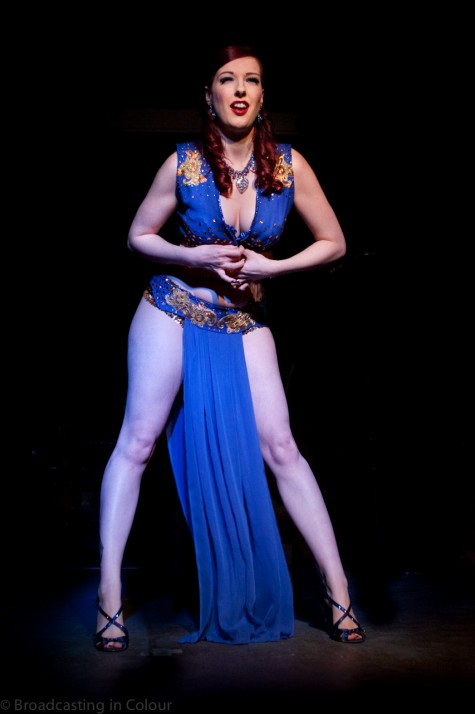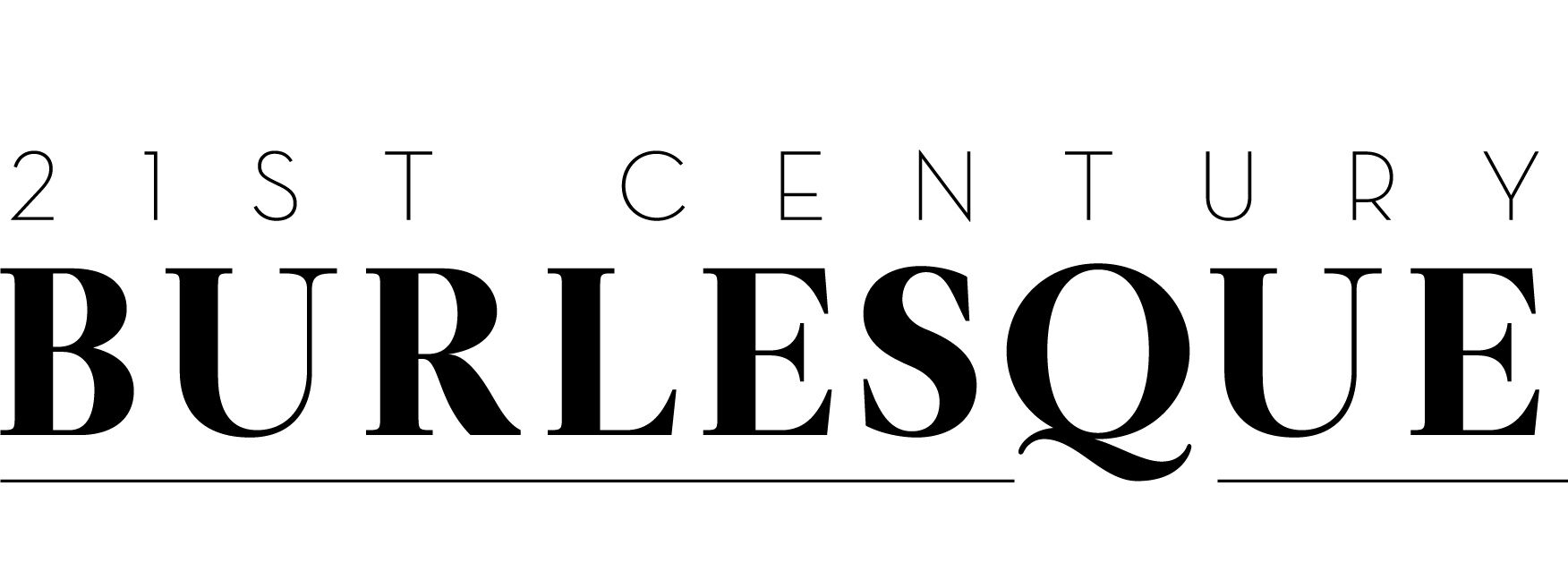Ah, the F word. There’s a lot of mystery around the amount performers charge for their services. It is often a taboo subject; I have had people whisper to me how much they are getting paid and feel incredibly guilty about it, like they’re telling me their deepest darkest secret. So here are some things to think about when quoting your burlesque fees.
Where to start…
If there’s a charge on the door, you should be paid something. If a promoter can’t even shout you a tenner for your travel then why should you work with them? Your time is worth something. You may be eager to tread the boards and show the world what you’ve got, but looking to the back of the room and seeing the promoter stuffing cash in their pocket when no one is getting paid is a terrible thing and shouldn’t be tolerated. If they don’t pay you something now, chances are they won’t book you and pay for you again.
I think I was lucky to start out at a time when, even though burlesque was gaining popularity, there weren’t the unsavoury characters that I have been told of exploiting performers and making money without paying any out. At my first show I was offered my travel but nothing else, with the proviso that if the event was a success I would be invited back (which I was, for a paid spot every year). I was happy to perform for this. I knew that the show had bigger names on that commanded a higher fee and I was truly grateful that someone had taken a chance on me.

I did a few shows after this for door split with no travel, which again I was happy to do, knowing that I would be treated equally to all other performers on the bill. These were little shows where I carved my niche and met some of the performers I’m extremely proud to call my friends, an instant camaraderie developed because we had all started about the same time and did many of the same shows.
Really what I’m trying to say is, you need to earn your stripes, figure out what works and what doesn’t, and find what you enjoy and what entertains an audience the most. This is the time you cut your teeth and it shouldn’t be about how much you get paid, it should be about becoming a better performer and finding your feet.
The charity show quandary…
I have performed at a few charity shows for no fee and all proceeds were going to charities that were close to my heart. My donation to the charity was my fee and time, providing the entertainment at no cost apart from my travel which was happily paid, and I had assurances that 100% of the profits were going to the charity.
It’s certainly a reasonable request to ask what percentage of the profits are going to the charity the event is been held for. I have heard of shows that are billed as “charity events” when only 10% of their profits are handed over, the rest being pocketed by the promoters after asking all performers for their services for free. Be aware of what you’re being offered and ask questions.
It’s not about how long you’ve been performing for…
You cannot expect to be paid a large amount on the basis of how long you have been performing. It’s not about longevity. It’s about skill, poise, character, costume, props, fan base and experience. Years of performing does not equal years of experience.

You could have been performing for five years, but if you’ve only done twenty shows in that time it’s nothing compared to a performer who has travelled internationally every weekend for a year and a half with some of the top names in the business.
But be aware: I know of instances where greedy-eyed promoters have seen a new performer, up and coming and gaining popularity, and cash signs have rung out before their eyes. The act has been booked for a tiny sum, knowing that they would agree and that they’d bring a lot of paying customers through the door, maximising profit and cashing in on the buzz. Unfortunately this hasn’t been an isolated incident.
I do have to say, though, a promoter worth their salt will be happy to pay a reasonable fee and 95% of the events I’ve worked with have done.
Where to start and what to factor in…
After around 6–9 months of door split and having built up my CV, I applied for castings and was approached about my fees. I didn’t have a clue where to start but considered a few things: the cost and quality of my costumes, rehearsal time, the fan base I was building, and my place on the bill.
(If you have a large prop act, remember to factor in the extra weight in your car for fuel consumption, the added time of set up and break down, the cost of the prop in the first instance and the cost of rehearsal space if you can’t rehearse at home. Promoters should expect to pay extra for such an act.)
I charged £30 ($49) plus travel (first after the newbie slot of the bill).
I went up to £50 ($82) plus travel (second after newbie slot on the bill)
Then £80 ($130) plus travel (middle billing).
As I started to creep up higher, £100 ($163) plus travel.
And finally £150 ($245) plus travel as I went further up the billing and on to perform at some of the UKs top events.

I’m not saying the above amounts are what everyone should be charging, just what I have charged, and I am aware that 2008 prices wont be the same as now (petrol for instance has gone up by a helluva lot, as has the cost of high-caliber rhinestones).
As I was building up my CV I was being approached by some fantastic events, and often they would often book me for a certain amount. This helped immensely with my peace of mind that I was charging the right amount to the right people, but it is very tricky to know what the right amount is.
Being aware of your place in the grand scheme of things and being realistic about your talents is a good start. You might want to be the next *insert famous headline act here*, but if you haven’t got the dance/circus/comedy skills they have, you aren’t going to be (right now) and you can’t expect to charge as much.
The good thing is, though, you can be you. You can write yourself into the burlesque history book and be just as good with commitment, training and flair; you just need to build up to it.
I knew I could entertain, I was a good mover, my costumes were up to scratch, but I knew I wasn’t in the same league as other performers that were on the same bill as me, and that’s not being down on myself, it’s being aware of myself and knowing where I fit in and who I’m on a level with.
Charge a set amount.
When you do start to charge for performances, quote a flat fee to everyone; there’s nothing more frustrating for a promoter than someone commanding a high fee and then seeing them on the billing for a smaller show that they know would have booked them for a lot less. A lot of performers run their own shows; they know what other shows offer in the way of payment and you may lose out on future bookings because of it.
If your fee is not accepted then do be flexible, but within reason. Don’t go slashing your fee in half just because someone says they can’t pay what you have originally quoted.
It’s good to be busy, but do you really want to be the performer who will do anything at any price? In the long run it may damage your reputation and cause issues when you want to be paid more from promoters that have had you for a bargain. Don’t sell yourself short when you don’t have to!

There will of course be exceptions to the rule. The gigs that you do for the fun of it, the Dr Sketchy’s that you know cannot afford to pay a lot but you get to hang out with your friends, the favours you’ll help out a friend with when someone has dropped out last minute, the promoter that you’d do anything for because they helped you on your way at the start of your career and gave you a boost.
I know not everyone will agree with what I’ve written, but this is based on my experience from 2008 to 2013 and times they are a-changing.
Talk to fellow performers and don’t be shy about telling others what you’re being offered (this isn’t to say marching up to *insert international headline act* and asking what they’re charging would be a good idea – obviously that would be rude). Ask those who are on the same billing as you, and ask others who you know well (that might have been about for a bit longer) what they think about how much you’re charging.
I was lucky enough to find a supportive group of burlesque friends early on who were open and honest about all aspects of burlesque with me, and it helped immensely to guide me through those first few years. Open up the discussion with your burlesque family; it’ll be the best thing you ever did.
(Photos from every step of my performing career.)
Ivy Wilde



